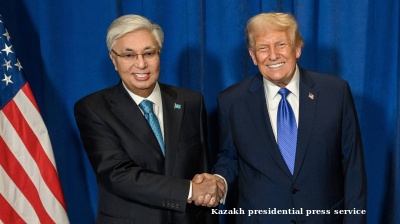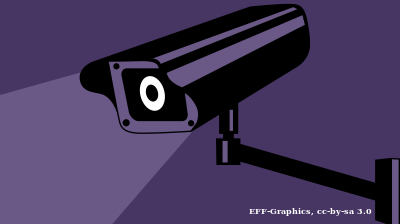The Kazakh government went ahead with a ban on speaking Russian in cabinet meetings on February 27, even though many Kazakh ministers prefer it over their native language.
The move further weakens Kazakhstan’s cultural ties with Moscow, following Kazakh President Nursultan Nazarbayev’s decision to introduce a Latin alphabet for the Kazakh language and phase out the Cyrillic alphabet by 2025. Nazarbayev on October 26 ordered his office to start preparations for the transition. His previous comments on a possible shift to the Latin alphabet in 2006 and 2012 were largely regarded as empty words, but were also met with remarks of disapproval from Moscow. Since the Cyrillic alphabet is also used in Russia, the latest plans for a switchover have been interpreted as a geopolitical move that emphasises Kazakh culture and Kazakhstan's drifting away from Russia. A new Latin alphabet of 26 letters has already been developed. And Kazakh officials have not stopped short of associating their plans with “strengthening” Kazakhstan's statehood and sovereignty.
On the other hand, the language and alphabet moves might merely be attempts by Nazarbayev to cater to nationalism heavily present among Kazakhs - the 2016 country-wide protests criticising the ruling regime were primarily led by the country’s ethnic-Kazakhs and expressed grievances mostly in the Kazakh language.
Despite the ban, some officials are still granted exceptions to the rule. A televised event lately featured Education Minister Yerlan Sagadiyev and a number of provincial officials, who joined the conference via videolink. All participants were permitted to speak Russian. It is also worth noting that Kazakhstan is not the first Central Asian nation to undergo “de-Russification”, but rather the slowest one.
The fading cultural ties are not necessarily in line with the make-up of the country’s population - the country has a significant Russian-only-speaking segment of ethnic Russians, Ukrainians and Koreans, among others, while the vast majority of ethnic Kazakhs tend to be bilingual. Only 62% of the population were fluent in Kazakh at the time of the 2009 census, while 85% were fluent in Russian.
Nonetheless, an invisible wedge has been growing between Russia and its Central Asian neighbour since Moscow seized the Crimean peninsula from Ukraine in 2014 in response to the Euromaidan protests and subsequent revolution that drove out a Moscow-friendly president. Any statements made by Russian officials that appear to place in question the statehood Kazakhstan gained after it was granted independence from the USSR tend to prompt collective gasps. The fact that Kazakhstan has a sizable ethnic-Russian minority and a near 7,000-kilometre-long border with Russia does nothing to ease apprehension.
“The people of Kazakhstan do not want a Ukrainian scenario in the country,” Nazarbayev - who has also ordered all parliamentary hearings to be held in Kazakh, said early in 2016 - promising to punish anyone who might try to pursue a Euromaidan-type event in his country.
The country even quietly passed a new military doctrine last year, which appears to heavily suggest prioritisation of defence against potential threats from “global powers” at Kazakhstan’s borders, which can only refer to Russia or China. But China has not shown any sign of regional military ambitions concerning Kazakhstan.
News

Serbia’s NIS posts 9-month net loss as US sanctions weigh on performance
NIS, majority-owned by Russia’s Gazprom Group, said it had operated in “extremely complex circumstances” after sanctions were announced by the US Treasury Department.

Nigeria's Heirs Energies' CFO on powering growth via sustainable, indigenous-led development
NewsBase speaks exclusively to Samuel O. Nwanze, Executive Director and Chief Financial Officer of Nigerian indigenous integrated oil and gas company Heirs Energies.

Brazil's Lula "horrified" as Rio police raid death toll reaches at least 130
Brazilian President Luiz Inácio Lula da Silva expressed shock at the fatalities from a massive police operation targeting Rio drug gangs that left scores dead, while residents and rights advocates accused authorities of summary executions.

Nigeria's NNPCL weighs technical equity partnerships to revive idle state-owned refineries
NNPCL is reviewing options to bring the Port Harcourt, Warri and Kaduna refineries back into meaningful operation, possibly by bringing in technical equity partners to upgrade or repurpose units.




